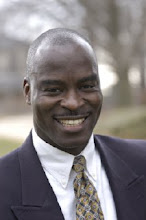Immediately following violent conflict (after peace agreement and disarmament), victims often continue to harbor deep sense of resentment and suspicion toward former rebel fighters (perpetrators / victimizers). One of the strategies to alleviate tension and/or social division is for former perpetrators / victimizers to seek forgiveness.
Within the predominant literature on conflict resolution and peacebuilding, the act of seeking forgiveness, mostly originating from the global north, involves former perpetrators / victimizers standing straight up or sitting in upright position, looking directly at the victim(s), and offering a firm handshake to ask for forgiveness. Whilst there is nothing wrong with such a peacebuilding mechanism originating from Western industrialized societies, such a strategy is inadequate to restore a sense of living together after violent conflict, especially, in non-Western industrialized post-conflict contexts, such as in African societies.
The approach to peacebuilding in some non-Western societies is different, however. In certain African societies or indigenous societies, for example, restoring broken relations after conflict often starts with a deep expression of remorse by the perpetrator of violence and atrocities through certain acts such as the perpetrator or victimizer laying down on the floor, confessing his or her atrocities, expressing remorse, and seeking forgiveness. The perpetrator does not stand looking straight or sitting in an upright position looking directly into the victim’s eyes and offering a handshake to ask for forgiveness.
During a part of the training session in Kigali, Rwanda, I laid on the floor to demonstrate the act of seeking forgiveness, which is only one small step towards restoring a sense of living together amongst victims and their victimizers. Laying on the floor is a ritual practice that symbolizes acknowledgement of guilt, expression of remorse, and recognition of the need for social cohesion.
Unfortunately, such cultural practices of peacebuilding are not widely discussed in the predominantly western-produced literature on conflict resolution and peacebuilding in post-conflict societies in the global south, as such, they are under-researched and/or unutilized.
Citing this blog post in APA format:
Vonhm, M. E. (2003, July). Cultural Practice On How To Seek Forgiveness Following Violent Conflict In Non-Western [indigenous] Societies. Center for Peace Education. http://peacefulliberia.blogspot.com



No comments:
Post a Comment